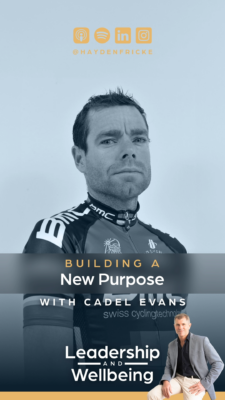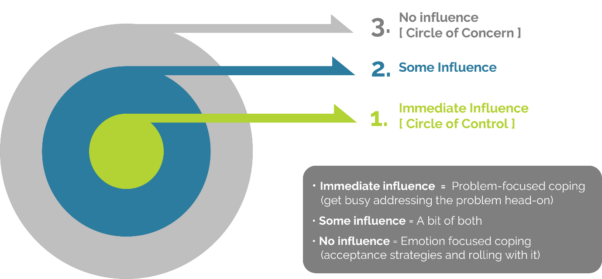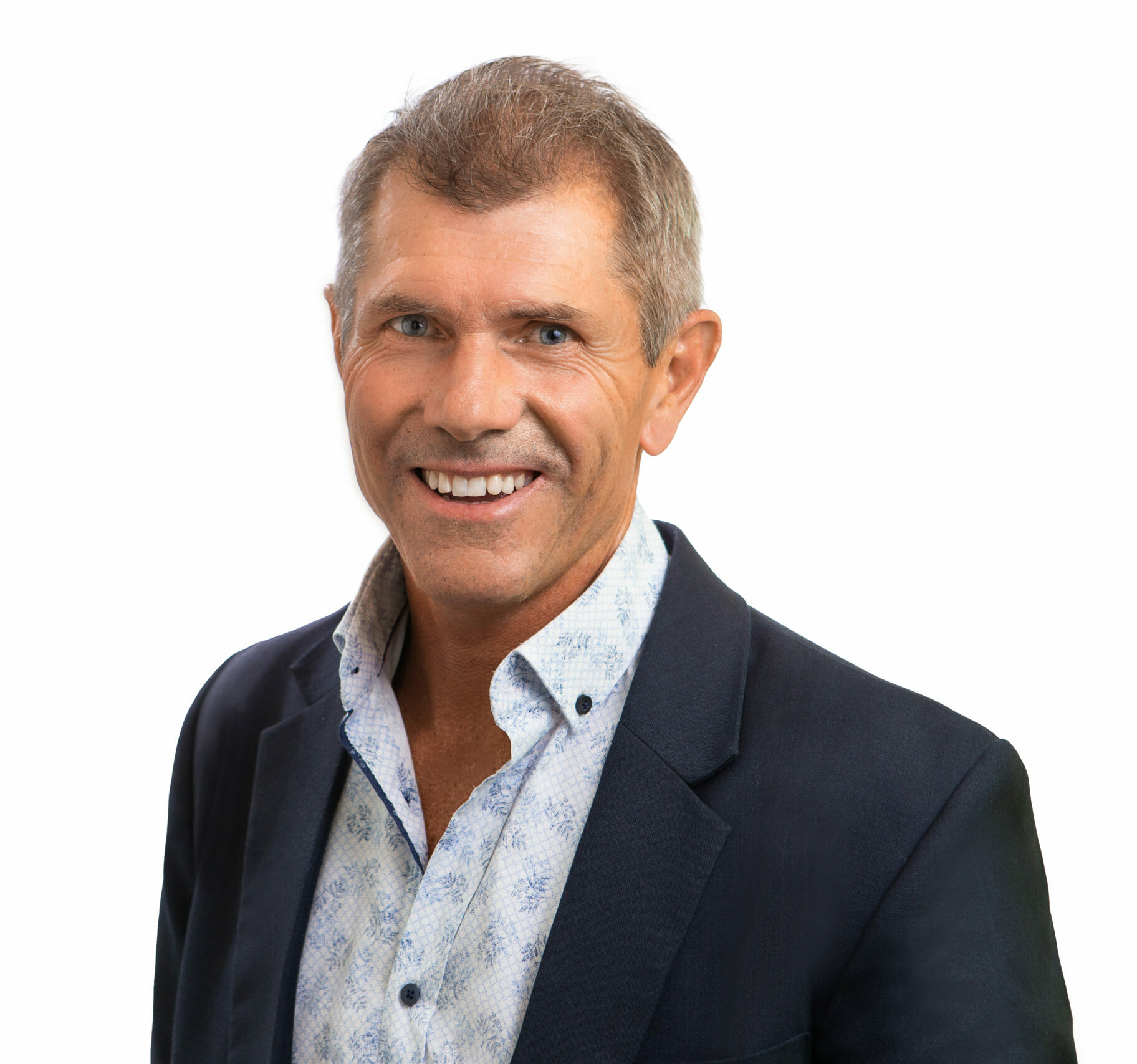Building a New Purpose with Cadel Evans
Recently I had the pleasure of speaking with the former winner of the Tour de France, Cadel Evans. While Cadel’s incredible athletic achievements are well-known, I was interested in exploring his journey after retiring from professional cycling. In particular, I wanted to understand how he has been able to build a new purpose for his life while adopting a more sustainable approach to health and wellbeing.

Cadel Evans is most well-known for his 2001 Tour de France win as only one of three non-Europeans to have officially won the race. He’s a four-time Olympian and before road bicycle racing, he was a champion mountain bike rider. Cadel won the 1998 and 1999 UCI Mountain Bike World Cup. In 2007, he won the overall Pro Tour classification and was named Australian Cyclist of the Year.
In our conversation, Cadel shared valuable insights into his post-retirement life, his strategies for maintaining balance and the importance of reflection in personal growth. He talked about the nature of a career as an elite athlete as all-consuming, with a relentless focus on training and performance. He was a perfectionist as a cyclist and needed this quality to continually search for that extra 1 percent of performance. However, as he approached the end of his career, he made a conscious decision to transition into a more balanced lifestyle, where his focus was less on an elite standard of performance and more on being a healthy human being. He needed to let go of his perfectionistic tendencies and learn to be more open to a world that was not built on the relentless focus of driving performance. We know from research that perfectionists strive to produce flawless work and have higher levels of motivation and drive. However, the evidence also suggests that perfectionists have higher levels of stress, burnout and anxiety. This shift in mindset allowed him to redefine his expectations and begin to find fulfilment beyond the world of professional cycling. Changing his mindset has not been a simple task and, in fact, this is still a work in progress for Cadel.
While retirement from professional road cycling came with its challenges around identity and purpose, Cadel also found himself navigating significant changes in his personal life, including a break-down in his marriage and a custody battle over his son. However, he approached these challenges with resilience and a determination to keep moving forward. By staying busy and maintaining his fitness, Cadel found solace and a sense of control amidst the chaos.
We spoke about Stephen Covey’s ‘Circle of Control’ model as a useful framework for thinking about and dealing with difficult challenges in life. Cadel deliberately developed this type of mindset and felt the importance of taking responsibility for what he could when it felt like so much was outside of his control.

We spoke about his sense of purpose in life. As a professional cyclist, he had a clear and compelling purpose, however after his career ended, he needed a new direction. According to researcher William Damon in The Path to Purpose, having a meaningful intention and purpose helps you stay focused on the things that matter most to you. It helps you prioritise your life, allowing you to stay motivated when things get tough. Cadel had consciously shifted his purpose to staying fit and healthy in a more balanced manner in order to be a role model for his children and to be able to continue to be highly active well into his 80s.
This lead us to explore the idea of daily habits. Cadel continued to ride and stay fit after he retired from professional cycling. He commented that it is easier for him to continue to ride because he created his own
momentum whereas it would be more challenging for someone who did not have these habits to get off the couch and go to the gym. Cadel only had to make small adjustments to build new habits that were more sustainable for the rest of his life. I recall Simon Sinek, a well-known British-American author and inspirational speaker, telling a lovely and simple story about habits. He said, “If you brush your teeth once, you are not going to have clean teeth; it’s the fact that you brush your teeth morning and night for each day of your life that helps you have clean teeth.” This is the same for exercise; you need to do a little bit every day for your entire life to get and stay fit and healthy. Cadel is doing this, and he feels good about it.
As we navigate our own paths, Cadel’s insight and experiences are a reminder that finding balance and stopping to appreciate the small joys in life are crucial to leading healthy lives. By doing so, we can cultivate a more fulfilling future for ourselves and those around us.
Listen to the full podcast: https://haydenfricke.com/leadership-and-wellbeing-podcast/
Connect with Hayden:
Websites:
– https://haydenfricke.com/
– https://www.steople.com.au/
– APS College of Organisational Psychologists

